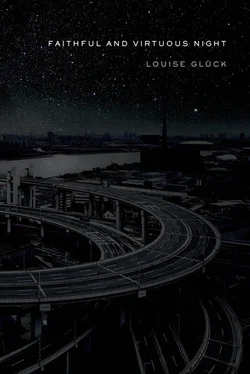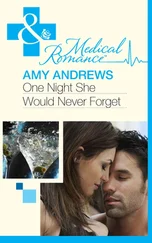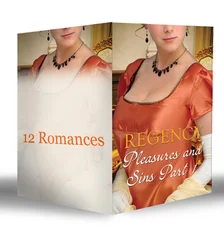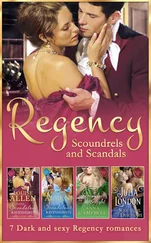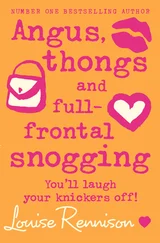and I too had a special outfit:
striped pyjamas.
Picture if you will a day in spring.
A harmless day: my birthday.
Downstairs, three gifts on the breakfast table.
In one box, pressed handkerchiefs with a monogram.
In the second box, colored pencils arranged
in three rows, like a school photograph.
In the last box, a book called My First Reader .
My aunt folded the printed wrapping paper;
the ribbons were rolled into neat balls.
My brother handed me a bar of chocolate
wrapped in silver paper.
Then, suddenly, I was alone.
Perhaps the occupation of a very young child
is to observe and listen:
In that sense, everyone was occupied—
I listened to the various sounds of the birds we fed,
the tribes of insects hatching, the small ones
creeping along the windowsill, and overhead
my aunt’s sewing machine drilling
holes in a pile of dresses—
Restless, are you restless?
Are you waiting for day to end, for your brother to return to his book?
For night to return, faithful, virtuous,
repairing, briefly, the schism between
you and your parents?
This did not, of course, happen immediately.
Meanwhile, there was my birthday;
somehow the luminous outset became
the interminable middle.
Mild for late April. Puffy
clouds overhead, floating among the apple trees.
I picked up My First Reader , which appeared to be
a story about two children — I could not read the words.
On page three, a dog appeared.
On page five, there was a ball — one of the children
threw it higher than seemed possible, whereupon
the dog floated into the sky to join the ball.
That seemed to be the story.
I turned the pages. When I was finished
I resumed turning, so the story took on a circular shape,
like the zodiac. It made me dizzy. The yellow ball
seemed promiscuous, equally
at home in the child’s hand and the dog’s mouth—
Hands underneath me, lifting me.
They could have been anyone’s hands,
a man’s, a woman’s.
Tears falling on my exposed skin. Whose tears?
Or were we out in the rain, waiting for the car to come?
The day had become unstable.
Fissures appeared in the broad blue, or,
more precisely, sudden black clouds
imposed themselves on the azure background.
Somewhere, in the far backward reaches of time,
my mother and father
were embarking on their last journey,
my mother fondly kissing the new baby, my father
throwing my brother into the air.
I sat by the window, alternating
my first lesson in reading with
watching time pass, my introduction to
philosophy and religion.
Perhaps I slept. When I woke
the sky had changed. A light rain was falling,
making everything very fresh and new—
I continued staring
at the dog’s frantic reunions
with the yellow ball, an object
soon to be replaced
by another object, perhaps a soft toy—
And then suddenly evening had come.
I heard my brother’s voice
calling to say he was home.
How old he seemed, older than this morning.
He set his books beside the umbrella stand
and went to wash his face.
The cuffs of his school uniform
dangled below his knees.
You have no idea how shocking it is
to a small child when
something continuous stops.
The sounds, in this case, of the sewing room,
like a drill, but very far away—
Vanished. Silence was everywhere.
And then, in the silence, footsteps.
And then we were all together, my aunt and my brother.
Then tea was set out.
At my place, a slice of ginger cake
and at the center of the slice,
one candle, to be lit later.
How quiet you are, my aunt said.
It was true—
sounds weren’t coming out of my mouth. And yet
they were in my head, expressed, possibly,
as something less exact, thought perhaps,
though at the time they still seemed like sounds to me.
Something was there where there had been nothing.
Or should I say, nothing was there
but it had been defiled by questions—
Questions circled my head; they had a quality
of being organized in some way, like planets—
Outside, night was falling. Was this
that lost night, star-covered, moonlight-spattered,
like some chemical preserving
everything immersed in it?
My aunt had lit the candle.
Darkness overswept the land
and on the sea the night floated
strapped to a slab of wood—
If I could speak, what would I have said?
I think I would have said
goodbye, because in some sense
it was goodbye—
Well, what could I do? I wasn’t
a baby anymore.
I found the darkness comforting.
I could see, dimly, the blue and yellow
sailboats on the pillowcase.
I was alone with my brother;
we lay in the dark, breathing together,
the deepest intimacy.
It had occurred to me that all human beings are divided
into those who wish to move forward
and those who wish to go back.
Or you could say, those who wish to keep moving
and those who want to be stopped in their tracks
as by the blazing sword.
My brother took my hand.
Soon it too would be floating away
though perhaps, in my brother’s mind,
it would survive by becoming imaginary—
Having finally begun, how does one stop?
I suppose I can simply wait to be interrupted
as in my parents’ case by a large tree—
the barge, so to speak, will have passed
for the last time between the mountains.
Something, they say, like falling asleep,
which I proceeded to do.
The next day, I could speak again.
My aunt was overjoyed—
it seemed my happiness had been
passed on to her, but then
she needed it more, she had two children to raise.
I was content with my brooding.
I spent my days with the colored pencils
(I soon used up the darker colors)
though what I saw, as I told my aunt,
was less a factual account of the world
than a vision of its transformation
subsequent to passage through the void of myself.
Something, I said, like the world in spring.
When not preoccupied with the world
I drew pictures of my mother
for which my aunt posed,
holding, at my request,
a twig from a sycamore.
As to the mystery of my silence:
I remained puzzled
less by my soul’s retreat than
by its return, since it returned empty-handed—
How deep it goes, this soul,
like a child in a department store,
seeking its mother—
Perhaps it is like a diver
with only enough air in his tank
to explore the depths for a few minutes or so—
then the lungs send him back.
But something, I was sure, opposed the lungs,
possibly a death wish—
(I use the word soul as a compromise).
Of course, in a certain sense I was not empty-handed:
I had my colored pencils.
In another sense, that is my point:
I had accepted substitutes.
It was challenging to use the bright colors,
the ones left, though my aunt preferred them of course—
she thought all children should be lighthearted.
And so time passed: I became
a boy like my brother, later
a man.
I think here I will leave you. It has come to seem
there is no perfect ending.
Indeed, there are infinite endings.
Or perhaps, once one begins,
there are only endings.
Long, long ago, before I was a tormented artist, afflicted with longing yet incapable of forming durable attachments, long before this, I was a glorious ruler uniting all of a divided country — so I was told by the fortune-teller who examined my palm. Great things, she said, are ahead of you, or perhaps behind you; it is difficult to be sure. And yet, she added, what is the difference? Right now you are a child holding hands with a fortune-teller. All the rest is hypothesis and dream.
Читать дальше
